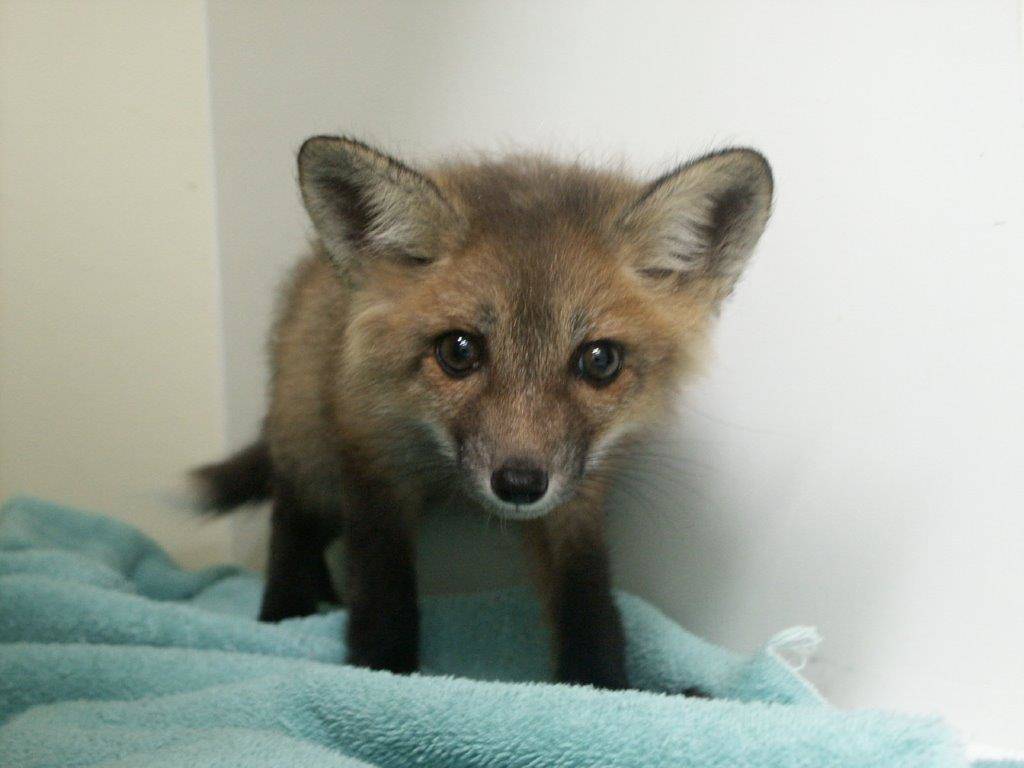Submitted by Wolf Hollow
It’s baby season on San Juan Island.
There could be a nest full of tiny nestling songbirds hidden in the bushes in your yard; young owls, woodpeckers or small raccoon kits in a hole in a nearby big tree; or downy ducklings following mom through the rushes at the edge of local ponds. Fox kits are beginning to poke their noses out of their dens and little, spotted fawns will soon be curled in the grass in island pastures or hidden under a bush at the edge of the woods.
This is a great time of year to see these beautiful young wild creatures, but also a time when they are very vulnerable.
These animals not only face natural hazards like predators or bad weather, but also man-made hazards such as vehicles, pets and gardening projects. Every year, many baby wild animals are killed or injured when a dog digs up a nest of baby rabbits or chases a doe and her fawn; or when a cat pounces on a fledgling robin that was just learning to fly. It is also the time of year when lots of people go into their gardens to trim back bushes or clear brush, only to find that they have destroyed a hidden nest and now have a batch of tiny nestling songbirds that urgently need help.
Wild parents are also more vulnerable at this time of year because they are too busy feeding and caring for youngsters to pay full attention to their own safety. A mother duck or otter leading her young across a road moves more slowly and is more likely to be hit by a car. A mother raccoon with four kits to shepherd won’t be able to climb a tree as quickly to escape from a dog, and a male robin will struggle to feed all his youngsters if his partner is killed by a cat. If these animal parents are killed or injured, their youngsters are unlikely to survive on their own.
Everyone can all help reduce these man-made hazards to wild youngsters by following a few guidelines:
• Keep dogs and cats under control.
• Drive carefully and give young animals time to cross the road.
• Postpone tree trimming and brush clearing until September to avoid destroying nests.
• Take care when mowing or weed-whacking to avoid injuring young animals in a nest in the grass, or female birds sitting on eggs.
• Watch wild animals with their youngsters from a distance. Don’t try to get too close.
If you find an orphaned or injured wild animal, don’t try to care for it. They need very specialized diets and care for the best chance of surviving and going back into the wild. Call Wolf Hollow Wildlife Rehabilitation Center at 360-378-5000 to report injured or orphaned wild animals, or for more information about baby wildlife.
Wolf Hollow Wildlife Rehabilitation Center is a nonprofit located on San Juan with a mission to promote the well-being of wildlife and their habitats through rehabilitation of injured and orphaned wildlife, public education and noninvasive research. More than 17,000 animals from San Juan, Skagit, Whatcom and Island counties have received care at Wolf Hollow since 1983. To learn more, visit wolfhollowwildlife.org.



